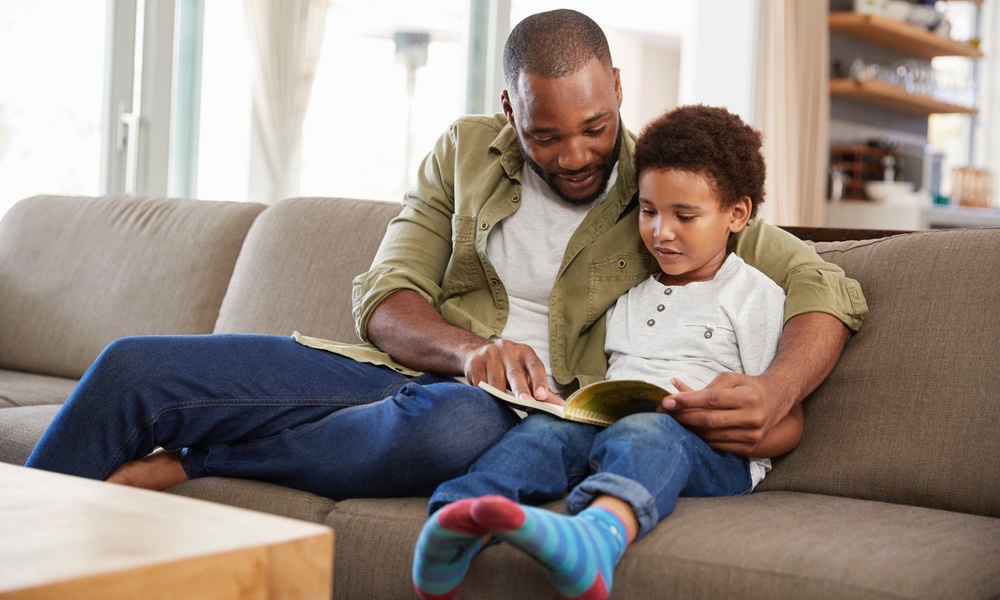Reading to young children is a shared activity that lays the foundation for social, emotional, cognitive, language and literacy development. When parents and caregivers read with a young child, they are not only developing literacy and building vocabulary and teaching children about things like colors, animals, and vehicles. They are also strengthening their bond with the child, improving what pediatricians call relational health.
That is why the American Academy of Pediatrics (AAP) updated its policy statement for promoting literacy in young children for the first time in ten years. All the research that has come out in the last decade has only strengthened recommendations made in previous policy statements, Dipesh Navsaria, a co-author of the technical report published with the statement, told TheDoctor.
A key recommendation in the new AAP statement is that pediatricians should start talking to families about the benefits of sharing books with their children from an early age. They can also encourage parents and caregivers to make reading together a daily routine and ask how that is going at checkups. “This is about building support for parents and reinforcing what they are already doing, so that daily reading becomes an important part of their lives,” Navsaria, chair of the AAP Council on Early Childhood, said.You don't need to read a young child a story exactly as it is written. Pick out random pages and talk about the pictures. “That works really well with a squirmy toddler with a short attention span!”
When an adult and child look at books together or read them together, the child is getting attention from and connecting with the adult. “They are getting that together time, even if it is just a few minutes a day.”
Ideally, adults should allow children to turn the pages or decide what pages to look at. Parents and caregivers may not realize that in the first few years of a child's life, they don't need to read the story exactly as it is written. They can pick out random pages and talk about the pictures. As Navsaria put it, “That works really well with a squirmy toddler with a short attention span!”
The AAP parenting website, Healthy Children, has a list of books that help children build character and learn good values and a list of diverse and inclusive books for children. The American Library Association also suggests notable books for children.
Don't forget the library. Not only is it free, it will probably have lists of recommended books, Navsaria pointed out, and its librarians can help you find books by the same author that you and your child have enjoyed or books by others that are similar.
The AAP policy statement and a related technical report are published in the journal, Pediatrics.





